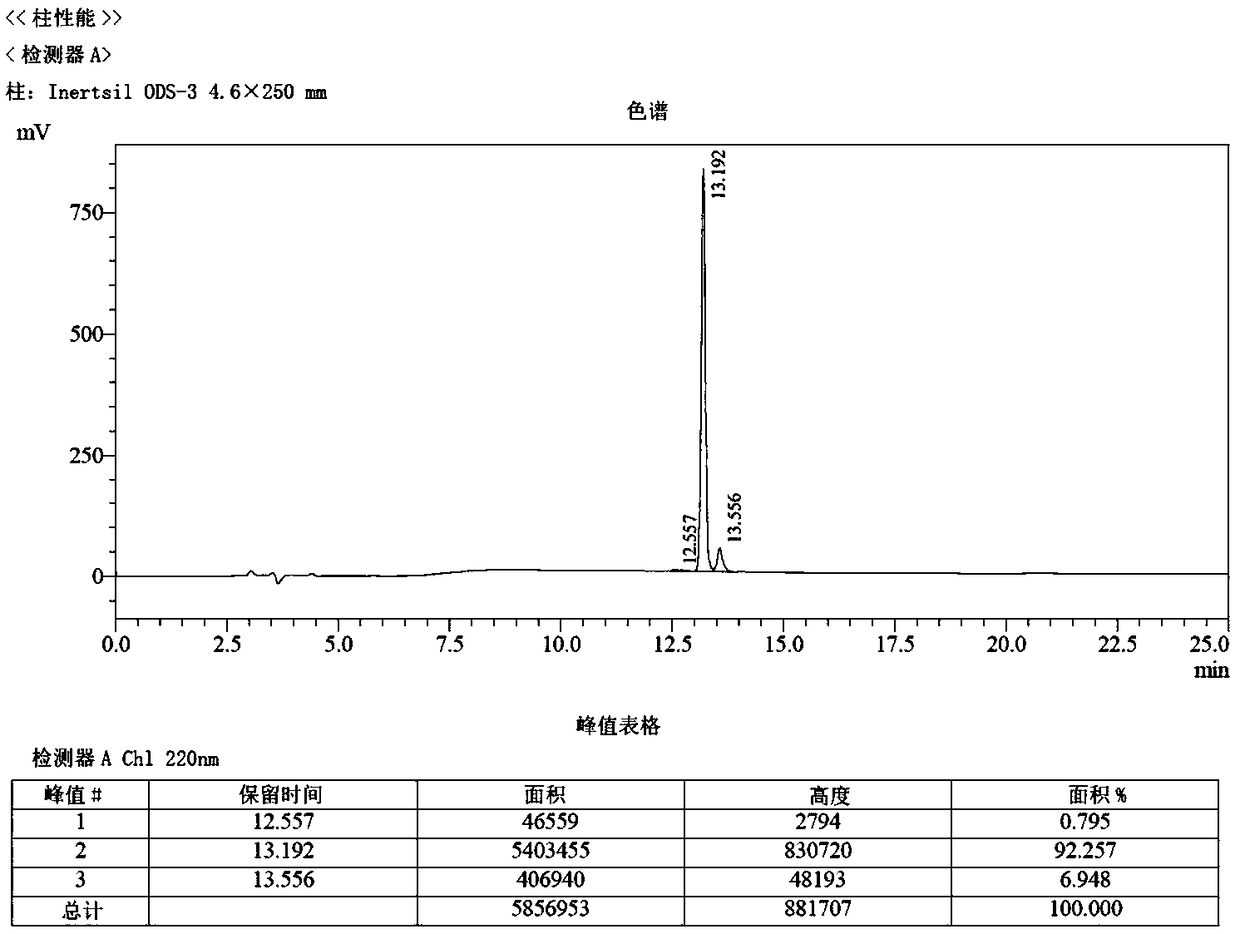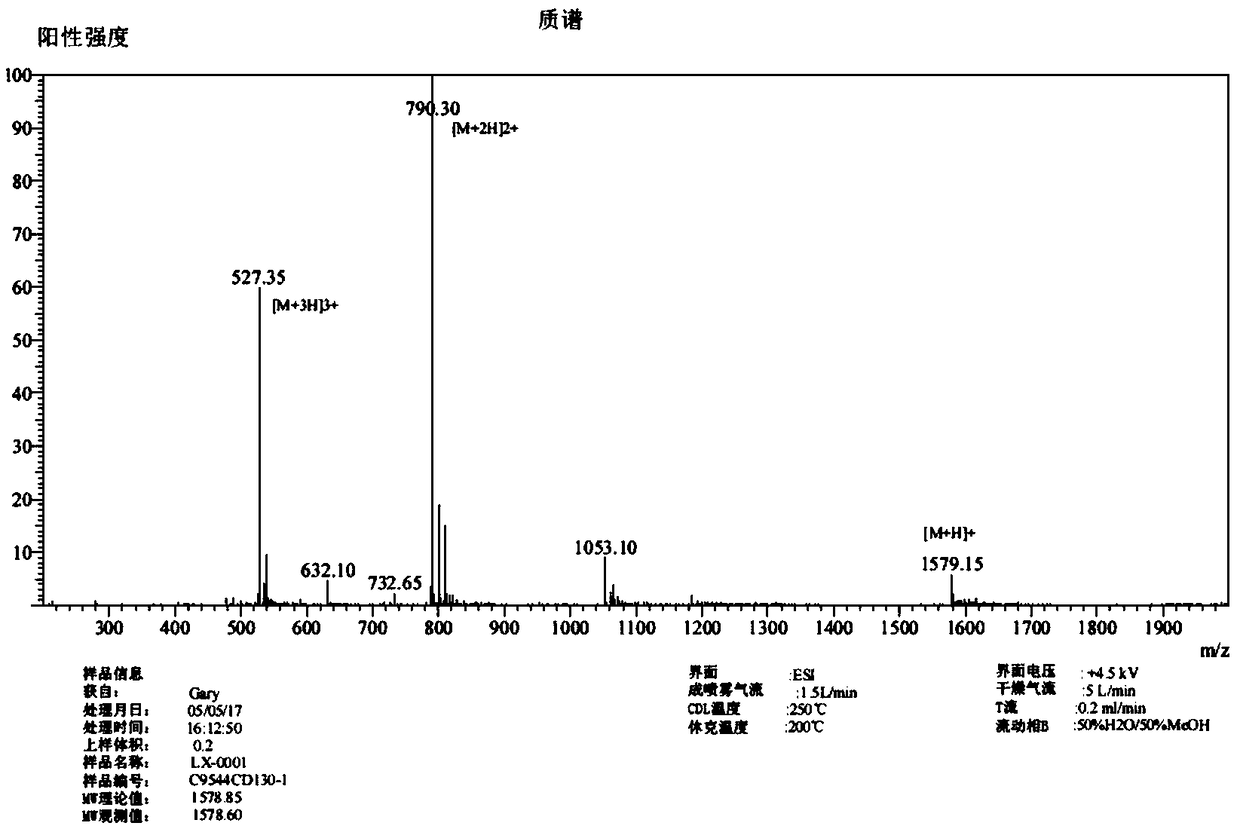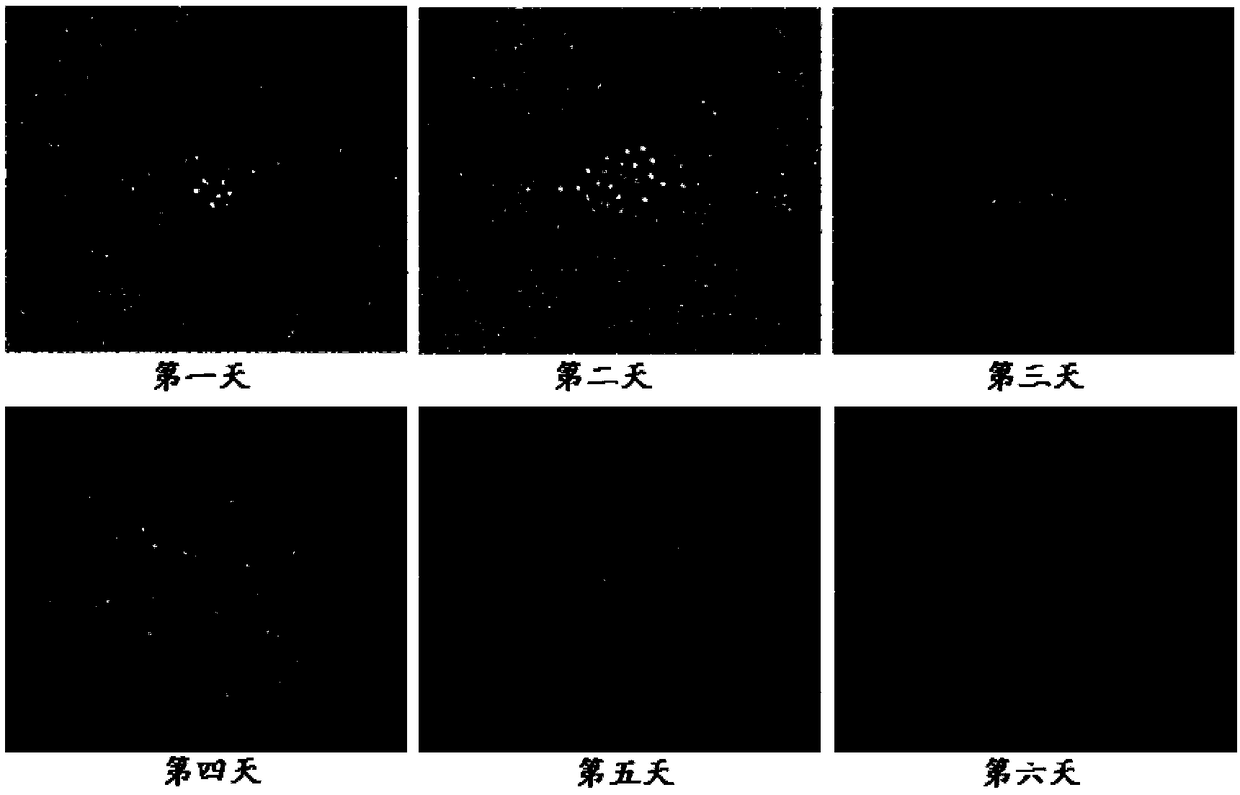Anti-HPV16 E6 protein monoclonal antibody and application thereof
A technology of HPV16E6 and monoclonal antibody, applied in the field of biological detection, can solve the problems of low specificity and no provision
- Summary
- Abstract
- Description
- Claims
- Application Information
AI Technical Summary
Problems solved by technology
Method used
Image
Examples
Embodiment 1
[0045] Preparation and purification of the monoclonal antibody of embodiment 1 anti-HPV16 E6 protein
[0046] In this example, the monoclonal antibody secreted by the hybridoma cell line with the deposit number CCTCC NO: C2018152 was prepared by hybridoma technology, and a large amount of it was prepared and purified.
[0047] 1. Antigen preparation
[0048] 1.1 Polypeptide antigen screening The full-length sequence of HPV16 E6 protein is analyzed by AbDesigner and DNASTAR software, and the amino acid secondary structure, hydrophilicity, and antigenicity of the protein are analyzed; the three-dimensional structure of the protein is further analyzed, and blasted in the database By comparing the specificity of these sequences, the excellent polypeptide epitope sequence (SEQ ID NO: 1) of HPV16 E6 protein was finally screened out
[0049] SEQ ID NO: 1: DPQERPRKLPQLC.
[0050] 1.2 Synthetic peptide antigen
[0051] The selected polypeptide sequence is synthesized by the Fmoc-pro...
Embodiment 2
[0080] Example 2 Characterization of the monoclonal antibody against HPV16 E6 protein
[0081] In this example, the subtype of the monoclonal antibody prepared in the present invention was identified and its affinity constant for binding to HPV16 E6 protein was tested.
[0082] 1 Subtype identification: Dilute the coated goat anti-mouse IgG (BD Company, NO.KW09JL0510) with 100 mM PBS (pHT.4), and operate according to the product manual. The results show that the monoclonal antibody of the present invention is an IgG1 type mouse monoclonal antibody.
[0083] 2 Determination of affinity constant:
[0084] Synthetic polypeptide (SEQ ID NO: 1) was coated with a coating concentration of 1 μg / ml, 100 μL / well, coated overnight at 4°C, and washed 3 times with PBS-T. Add 200 μL of blocking solution to each well to block at 37°C for 2 hours, and wash 3 times with PBS-T. The monoclonal antibody purified in the above step 7 was serially diluted 2 times from 1:200, leaving a blank contr...
Embodiment 3
[0087] The reaction specificity of the monoclonal antibody of embodiment 3 anti-HPV16 E6 antigens
[0088] In this example, the immunoblotting method was used to test the reaction specificity of the monoclonal antibody prepared by the present invention to the HPV16 E6 protein.
[0089] Caski, Hela cell lysate protein and prokaryotic recombinant protein were selected, and the recognition specificity of the monoclonal antibody of the present invention was detected by immunoblotting. Gel electrophoresis. Gel protein bands were transferred to PVDF membranes in a Bio-Rad electrotransfer system as usual. Place the membrane in TBS-T blocking solution containing 5% skim milk powder at 4°C overnight. Add monoclonal antibody (about 1 mg / ml, diluted 1:1000) and incubate overnight at 4°C. After washing the membrane with TBS-T solution, a 1:5000 dilution of goat anti-mouse secondary antibody (Beijing Suo Laibao Technology Co., Ltd., No. SE131) was added and incubated at room temperature...
PUM
| Property | Measurement | Unit |
|---|---|---|
| affinity | aaaaa | aaaaa |
Abstract
Description
Claims
Application Information
 Login to View More
Login to View More - R&D
- Intellectual Property
- Life Sciences
- Materials
- Tech Scout
- Unparalleled Data Quality
- Higher Quality Content
- 60% Fewer Hallucinations
Browse by: Latest US Patents, China's latest patents, Technical Efficacy Thesaurus, Application Domain, Technology Topic, Popular Technical Reports.
© 2025 PatSnap. All rights reserved.Legal|Privacy policy|Modern Slavery Act Transparency Statement|Sitemap|About US| Contact US: help@patsnap.com



